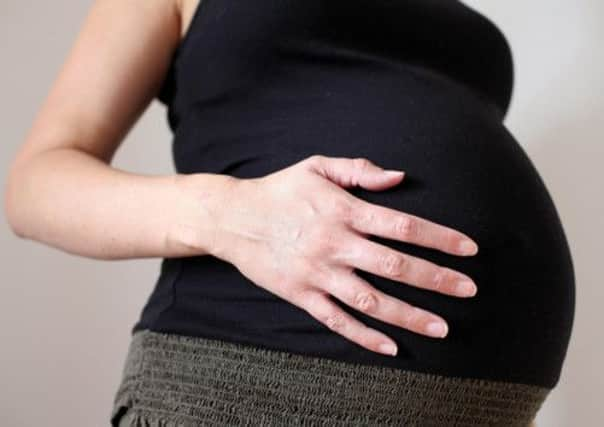Dani Garavelli: Teenage sex strategy is all too easy


Sure, there will be some minor cost implications and there might well be a degree of opposition from conservative quarters, but compared with tackling many of the more complicated issues that contribute to schoolgirls having babies (or abortions), such as poverty and drug and alcohol addiction, handing out condoms or the morning after pill is an easy fix, particularly if you are less concerned about whether or not it works than how it’s going to play with an electorate predisposed (somewhat ludicrously, in my opinion) to believe the main problem young people face when it comes to sex is ignorance.
While I don’t vehemently object to the idea of giving adolescents access to free protection – as proposed by Holyrood’s health committee last week – or the introduction of sex education lessons at an earlier age, I do resent the way blanket contraception provision is so often punted as a panacea in the absence of any clear evidence it is effective and despite the fact it sends out mixed messages on under-age sex at a time when so many scandals involving the exploitation of vulnerable young girls are being highlighted in the media.
Advertisement
Hide AdAdvertisement
Hide AdThere has to be, surely, a contradiction between bemoaning the impact the “pornification” of society has on young people’s sexual expectations and endorsing physical intimacy between teenagers by handing out prophylactics.
It may seem quite reasonable to tell schoolchildren “You shouldn’t be having sex – but, if you’re determined, here’s how you do it safely,” but those who work with organisations such as the Women’s Support Project say girls are already under pressure to engage in sexual behaviour such as posting naked selfies online. If the state is actively facilitating the very experimentation they feel pushed to engage in, isn’t it going to make it even harder for them to say no?
If it suits your agenda, then yes, you can point to liberal countries such as the Netherlands and Sweden, where sex education begins early, contraception is readily available and the teenage pregnancy rate is low.
But teenage pregnancy rates are also comparatively low in sexually conservative countries such as Italy or Spain, so it’s difficult to draw any real conclusions.
David Paton, the chair of industrial economics at Nottingham University Business School, who has carried out several studies into the problem in the UK, says that since the Westminster government launched its teenage pregnancy strategy in 1999, millions of pounds have been put into providing confidential sexual health services for youngsters to no real effect.
The reason for this, he has posited, is that, while handing out condoms (or Dutch caps or the pill) reduces pregnancy rates among those who would have had sex anyway, it fuels sexual behaviour among those who might otherwise have waited; some of those teenagers then fall pregnant, causing the overall figures to remain largely static. Moreover, since not all methods of contraception provide protection against sexually transmitted infections, the strategy has been linked to a rise in teenage STI rates.
Is it possible variations in the effectiveness of strategies relying on access to contraception are attributable to other cultural factors, such as the overall standard of living or attitudes to alcohol? Could it be, for example, that binge-drinking in the UK is leading teenagers to indulge in risky sexual behaviour they wouldn’t contemplate when sober?
And then there is the question of choice; though the assumption on the part of policy-makers seems to be that all teen pregnancies are accidents, we know that all over Scotland there are young girls who want to get pregnant (or at least are sanguine about the possibility) not because, as the stereotype would have it, they fancy a life on benefits, but because it affords them a bit of status in the short-term and there isn’t much else on offer.
Advertisement
Hide AdAdvertisement
Hide AdWith so many unknowns surrounding teenage pregnancies, it seems sensible for politicians to concentrate on the few statistical certainties at their disposal; of these, the most significant and incontrovertible, is the correlation between poverty and under-age conceptions.
In Scotland, for example, under-16s in the most deprived areas are more than four times more likely to fall pregnant than those in the least deprived areas – a fact the health and sport committee report acknowledges.
Decoding this is not rocket science. In wealthy enclaves, teenagers are busy making plans, studying, applying for university. They have their eyes firmly fixed on the future – and that future does not involve fractured nights nursing a newborn.
In areas of deprivation, opportunities are scarce and expectations lower. It’s hardly surprising that the fewer prospects adolescents have the more likely they are to have low self-esteem, to drink, to have sex and to get pregnant. Yet the report points out that some of the most valuable work being done with girls like this takes place in the community, and is already being affected by local authority cuts.
If we acknowledge the part poverty plays in under-age pregnancies – and accept we should be tackling under-age sex as well as under-age pregnancies – then surely the emphasis ought to be on teaching teenagers about healthy relationships and offering them the prospect of a better, more fulfilling lives.
Fine, hand out contraceptives if you think it will stop some of those who are at risk from getting pregnant; but be honest enough to present the initiative as a desperate, stop-gap measure, not the central plank of a strategy to create a better future. Unless a country full of knowing, sexually-active children is actually what we are aiming for. «
Twitter: @DaniGaravelli1